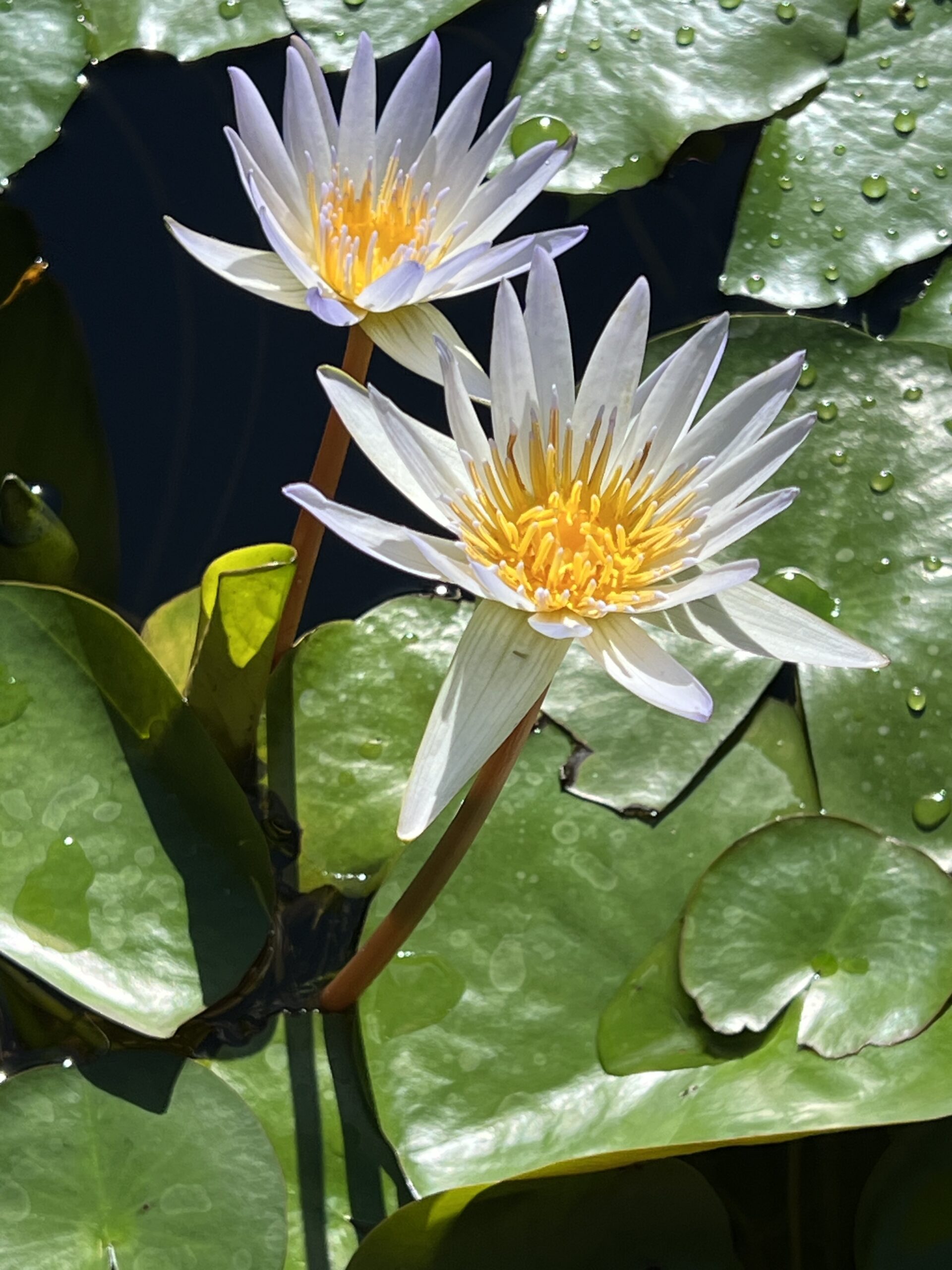April 28, 2025
GOOD, BETTER, BEST?
“Nourishing ourselves on the very inside of our being helps us to cope with the complexities and uncertainties of life, the helplessness we feel when we can’t control world events. There are too many power structures. We cannot fight them all at once. They have been on Earth since humans started walking around trying to expand their territory, conquering other countries. It has always been the same. Perhaps the methods of war, politics and economics have changed, but the basic elements have always been there. People have wondered what they can do about their helplessness, and how they will survive, and where they will go from here. But often it is not until we are so hurt or feel such a sense of helplessness or emptiness that we begin to think deeply.” (Swami Sivananda Radha YOGA A PATH TO AWARENESS Timeless Books 2016)
On the window sill across from me is a framed group of twelve photos that were taken in 2014, featuring members of our daughter’s family on travels or doing activities that used to be easy for me to accompany. Eleven years ago. When I could wrangle grand-babies, hike, travel, and ski etc. with ease. Now even the steps up to the cabin in Whistler cause me difficulty. These realities comprise a different kind of growing pains, aka aging, hormonal changes, physical infirmities and the above-mentioned sense of insecurity as the external world spins around, through and past me.
As often happens when I find myself going down a rabbit hole of “catastrophic thinking”, I remind myself to expand my sense of things. Beyond the framed photos, I see the outdoor landscape undulating down the hill, crossing the lake, climbing the craggy, tree-clad slopes of Armchair Glacier, while the sunrise peeks over the surrounding mountains. But for degrees of winter or summer snow cover, the mountains offer a sense of perennial strength and permanence that put today’s problems in perspective. I ask myself “Five years from now, how much will this, or that, really matter? And if it does, what can I do about it in this particular moment?”
In the meantime, nourishing myself on the very inside of my being seems like a reasonable strategy, as I subscribe to what Swami Radha suggests below:
“Sometimes on an individual level, we can also have what I call “silent revolutions”. The silent revolution is when you change on the inside, taking a new look at life and who you are. You may decide that life has to change, but you can’t change the world. So what can you change? Only yourself, and you might be able to help change others — awakening them to the need for greater awareness. You can sharpen your intelligence. You can even cooperate with your own destiny. You don’t have to wait until life breaks you down in pain. Pain is a great teacher and for some it is the only teacher. But life doesn’t have to be that way.”
For me, the aim of a silent revolution is to increase my awareness through the use of yogic tools. One of the most effective “tools” is Swami Radha’s liberal use of continuous query. Also known as the Socratic method, it involves engaging in a dialogue with self or others through a series of questions. Its aim is to explore our underlying beliefs and challenge assumptions in order to arrive at a deeper understanding of what makes one tick. It encourages critical thinking, logic, and reasoning as students are prompted to evaluate their own arguments and beliefs.
Even a simple question such as “how am I feeling right now?” can lift the needle from the rut of our constant, run-around thoughts and touch more into our emotions, perhaps assigning them feelings words that we can then work with, such as I used to describe the insecurity and vulnerability I was feeling this morning after pondering how much had changed in the last decade. And reeling from reading a newsletter on world affairs.
On such occasions, it helps to ask myself: “What is happening here? How do I know this is so? If it didn’t have to be this way, how else could it be?” The point is to not get caught in mechanical patterns of reacting vs responding to whatever is going on. Any chapter in any of Swami Radha’s writings is peppered with such questions:
“How am I imprisoned by mechanical reactions and untested beliefs? How can new decisions be made? What is it I want to do now? Where do I want to go from here?”
Through steady, methodical self-questioning and honest, thoughtful answering we gradually liberate ourselves from the mental/emotional reactivity of our old mechanical habits and social conditioning. With ever-increasing awareness we have ever greater agency to make inner and outer changes.
As Gandhi would say: “You must be the change you wish to see in the world today.”
Now is a good time to start.
